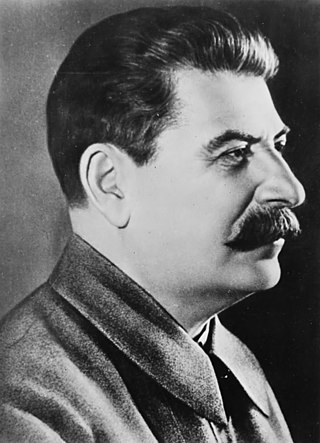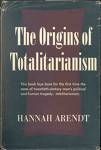
A dictatorship is an autocratic form of government which is characterized by a leader, or a group of leaders, who hold governmental powers with few to no limitations. Politics in a dictatorship are controlled by a dictator, and they are facilitated through an inner circle of elites that includes advisers, generals, and other high-ranking officials. The dictator maintains control by influencing and appeasing the inner circle and repressing any opposition, which may include rival political parties, armed resistance, or disloyal members of the dictator's inner circle. Dictatorships can be formed by a military coup that overthrows the previous government through force or they can be formed by a self-coup in which elected leaders make their rule permanent. Dictatorships are authoritarian or totalitarian, and they can be classified as military dictatorships, one-party dictatorships, personalist dictatorships, or absolute monarchies.

A government is the system or group of people governing an organized community, generally a state.
Moral equivalence is a term used in political debate, usually to deny that a moral comparison can be made of two sides in a conflict, or in the actions or tactics of two sides.

Totalitarianism is a political system and a form of government that prohibits opposition political parties, disregards and outlaws the political claims of individual and group opposition to the state, and controls the public sphere and the private sphere of society. In the field of political science, totalitarianism is the extreme form of authoritarianism, wherein all socio-political power is held by a dictator, who also controls the national politics and the peoples of the nation with continual propaganda campaigns that are broadcast by state-controlled and by friendly private mass communications media.
Autocracy is a system of government in which absolute power is held by the ruler, known as an autocrat. It includes some forms of monarchy and all forms of dictatorship, while it is contrasted with democracy and feudalism. Various definitions of autocracy exist. They may restrict autocracy to cases where power is held by a single individual, or they may define autocracy in a way that includes a group of rulers who wield absolute power. The autocrat has total control over the exercise of civil liberties within the autocracy, choosing under what circumstances they may be exercised, if at all. Governments may also blend elements of autocracy and democracy, forming an anocracy. The concept of autocracy has been recognized in political philosophy since ancient times.

The Reagan Doctrine was a United States strategy implemented by the Reagan Administration to overwhelm the global influence of the Soviet Union in the late Cold War. As stated by US President Ronald Reagan in his State of the Union address on February 6, 1985: "We must not break faith with those who are risking their lives—on every continent from Afghanistan to Nicaragua—to defy Soviet-supported aggression and secure rights which have been ours from birth." The doctrine was a centerpiece of United States foreign policy from the early 1980s until the end of the Cold War in 1991.
Neoconservatism is a political movement which began in the United States during the 1960s among liberal hawks who became disenchanted with the increasingly pacifist Democratic Party along with the growing New Left and counterculture of the 1960s amidst the Vietnam War. Neoconservatives typically advocate the unilateral promotion of democracy and interventionism in international relations together with a militaristic and realist philosophy of "peace through strength". They are known for espousing opposition to communism and radical politics.

Jeane Duane Kirkpatrick was an American diplomat and political scientist who played a major role in the foreign policy of the Ronald Reagan administration. An ardent anticommunist, she was a longtime Democrat who became a neoconservative and switched to the Republican Party in 1985. After serving as Ronald Reagan's foreign policy adviser in his 1980 presidential campaign, she became the first woman to serve as United States Ambassador to the United Nations.

The history of the United States from 1980 until 1991 includes the last year of the Jimmy Carter presidency, eight years of the Ronald Reagan administration, and the first three years of the George H. W. Bush presidency, up to the collapse of the Soviet Union. Plagued by the Iran hostage crisis, runaway inflation, and mounting domestic opposition, Carter lost the 1980 United States presidential election to Republican Reagan.
"Dictatorships and Double Standards" is an essay by Jeane Kirkpatrick published in the November 1979 issue of Commentary magazine, which criticized the foreign policy of the Carter administration. It is also the title of a 270-page book written by Kirkpatrick in 1982.

The Origins of Totalitarianism, published in 1951, was Hannah Arendt's first major work, where she describes and analyzes Nazism and Stalinism as the major totalitarian political movements of the first half of the 20th century.
Karl Dietrich Bracher was a German political scientist and historian of the Weimar Republic and Nazi Germany, born in Stuttgart. During World War II, he served in the Wehrmacht and was captured by the Americans while serving in Tunisia in 1943. Bracher was awarded a Ph.D. in the classics by the University of Tübingen in 1948 and subsequently studied at Harvard University from 1949 to 1950.Bracher taught at the Free University of Berlin from 1950 to 1958 and at the University of Bonn since 1959.
Communism is a sociopolitical, philosophical, and economic ideology within the socialist movement, whose goal is the creation of a communist society, a socioeconomic order centered around common ownership of the means of production, distribution, and exchange that allocates products to everyone in the society based on need. A communist society would entail the absence of private property and social classes, and ultimately money and the state.

Before the perestroika Soviet era reforms of Gorbachev that promoted a more liberal form of socialism, the formal ideology of the Communist Party of the Soviet Union (CPSU) was Marxism–Leninism, a form of socialism consisting of a centralised command economy with a vanguardist one-party state that aimed to realize the dictatorship of the proletariat. The Soviet Union's ideological commitment to achieving communism included the national communist development of socialism in one country and peaceful coexistence with capitalist countries while engaging in anti-imperialism to defend the international proletariat, combat the predominant prevailing global system of capitalism and promote the goals of Russian Communism. The state ideology of the Soviet Union—and thus Marxism–Leninism—derived and developed from the theories, policies, and political praxis of Marx, Engels, Lenin, and Stalin.
Authoritarianism is a political system characterized by the rejection of political plurality, the use of strong central power to preserve the political status quo, and reductions in democracy, separation of powers, civil liberties, and the rule of law. Political scientists have created many typologies describing variations of authoritarian forms of government. Authoritarian regimes may be either autocratic or oligarchic and may be based upon the rule of a party or the military. States that have a blurred boundary between democracy and authoritarianism have some times been characterized as "hybrid democracies", "hybrid regimes" or "competitive authoritarian" states.

The Black Ribbon Day, officially known in the European Union as the European Day of Remembrance for Victims of Stalinism and Nazism and also referred to as the Europe-wide Day of Remembrance for the victims of all totalitarian and authoritarian regimes, is an international day of remembrance for victims of totalitarianism regimes, specifically Stalinist, communist, Nazi and fascist regimes. Formally recognised by the European Union, the Organization for Security and Co-operation in Europe and some other countries, it is observed on 23 August. It symbolises the rejection of "extremism, intolerance and oppression" according to the European Union. The purpose of the Day of Remembrance is to preserve the memory of the victims of mass deportations and exterminations, while promoting democratic values to reinforce peace and stability in Europe. It is one of the two official remembrance days or observances of the European Union, alongside Europe Day. Under the name Black Ribbon Day it is an official remembrance day of Canada. The European Union has used both names alongside each other.

Various historians and other authors have carried out a comparison of Nazism and Stalinism, with particular consideration to the similarities and differences between the two ideologies and political systems, the relationship between the two regimes, and why both came to prominence simultaneously. During the 20th century, comparisons of Nazism and Stalinism were made on totalitarianism, ideology, and personality cult. Both regimes were seen in contrast to the liberal democratic Western world, emphasising the similarities between the two.
A civilian dictatorship is a form of government different from military dictatorships where the ruling dictator does not derive their power from the military. Among civilian dictatorships, dominant-party dictatorships tend to outlast personalistic dictatorships.

Throughout its history and up to the present day, the United States has had close ties with authoritarian governments. During the Cold War, the U.S. backed anti-communist governments that were authoritarian, and were often unable or unwilling to promote modernization. U.S. officials have been accused of collaborating with oppressive and anti-democratic governments to secure their military bases in Central America, Africa, Asia, and the Middle East. The Economist Democracy Index classifies many of the forty-five currently non-democratic U.S. military base host countries as "authoritarian governments".










